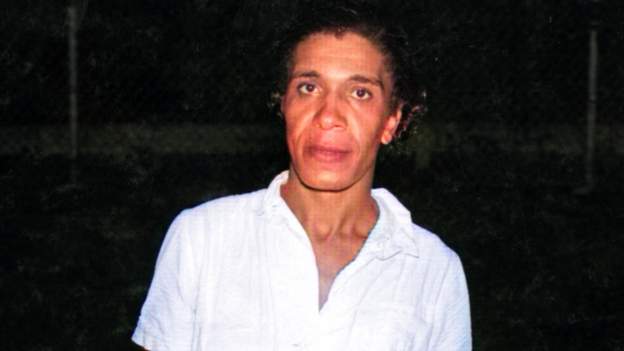You are using an out of date browser. It may not display this or other websites correctly.
You should upgrade or use an alternative browser.
You should upgrade or use an alternative browser.
Essential The Root Random Thoughts
- Thread starter Blackout
- Start date
More options
Who Replied?Secure Da Bag
Veteran
Dr. James Turner one of the leading architects of the conceptualization and institutionalization of Africana Studies in the U.S., joined the Ancestral Realm on August 6th.
Although W.E.B. DuBois, Carter G. Woodson and William Leo Hansberry were using the term "Africana" from the early 20th century to the early 1960s, Dr. Turner was the first to use the concept "Africana" in founding the discipline of Black Studies in the United States--and the first to use the nomenclature “Africana Studies” to describe a disciplinary approach to the study of people of African descent in both the African Diaspora and Africa. Dr. Turner was the founding director of the Africana Studies and Research Center (ASRC) at Cornell University in 1969. All programs, departments and fields of knowledge and scholarship, across the social sciences, humanities and STEM fields in the U.S. and throughout the world that utilize the concept of Africana are indebted to the legacy of Dr. James Turner.

 news.cornell.edu
news.cornell.edu
Although W.E.B. DuBois, Carter G. Woodson and William Leo Hansberry were using the term "Africana" from the early 20th century to the early 1960s, Dr. Turner was the first to use the concept "Africana" in founding the discipline of Black Studies in the United States--and the first to use the nomenclature “Africana Studies” to describe a disciplinary approach to the study of people of African descent in both the African Diaspora and Africa. Dr. Turner was the founding director of the Africana Studies and Research Center (ASRC) at Cornell University in 1969. All programs, departments and fields of knowledge and scholarship, across the social sciences, humanities and STEM fields in the U.S. and throughout the world that utilize the concept of Africana are indebted to the legacy of Dr. James Turner.

James Turner, a ‘giant’ of Africana studies, dies at 82 | Cornell Chronicle
James Turner, the founding director of Cornell’s Africana Studies and Research Center and a pioneer of the multidisciplinary approach to exploring the African diaspora, died Aug. 6.
The more that we think things changed, the more they stay the same . Everything in this doc can be applied to today
They had black soldiers sitting in the back of the show, white officers sitting in the front, and German POWs sitting in the front which means that amerikkka gave more status to German prisoners than they did black soldiers, Who fought in these cac wars .

They had black soldiers sitting in the back of the show, white officers sitting in the front, and German POWs sitting in the front which means that amerikkka gave more status to German prisoners than they did black soldiers, Who fought in these cac wars .


How to Help With the Water Crisis in Jackson, Mississippi
Biden declared a state of emergency in Mississippi on Tuesday evening, sending federal assistance to the statetime.com
The Mississippi Rapid Response Coalition, made up of over 30 organizations in the state, is taking donations online with a goal of raising at least $2 million. Donations will be used to purchase: water, reusable water containers, filters, and transport these items to those in need.
Other local organizations, like Operation Good, are taking donations through Cashapp under the tag ($Operationgoodms). The Immigrant Alliance for Justice & Equity of Mississippi is also accepting monetary contributions via Venmo (@IAJEofMS), Cashapp ($IAJEofMS) and Paypal (@IAJEofMS), which will be used to supply water.
The Mississippi Food Network is accepting donations online, as is the mutual aid group Cooperation Jackson, and New Horizon Ministries—which already regularly distributes food and water to the community.
Local students in the area have also created the MS Student Water Crisis Advocacy Team, which aims to deliver water to people who are not physically able to get it themselves due to age or disability. They are accepting donations under the ($JxnWaterCrisis22) on Cashapp.
If you are in the area and would prefer to donate water and supplies, most coalitions are asking that you get in contact with them to share the best location and time for drop-off.
- The Mississippi Rapid Response Coalition: Email rapidresponse@peoplesadvocacyinstitute.comto arrange pick-up/drop off.
- Operation Good: Call (601) 874-4521 to arrange pick-up/drop off. If you are out of the immediate area, you can ship goods to 2827 Oak Forest Dr., Jackson, MS, 39204, but organizers ask that you contact them ahead of time.
- New Horizon International Church: Call (601) 371-1427 to coordinate donations
- Cooperation Jackson: Email cooperationjackson@gmail.comor call (601) 355-7224
There is also a related implication, frequently occurring in Mende belief, which is expressed proverbially in the saying, 'God is the Chief'. In other words, Ngewo is too 'big' to concern himself about the ordinary person; he has to be approached indirectly. As one of my informants put it, 'If you are seeking a favour from a chief, you don't go to him yourself; you start by asking someone near him to speak on your behalf'. >> (Forde, 1954: 120)
Never knew about Ora Washington

 www.bbc.co.uk
www.bbc.co.uk

She was a 'queen of two courts' - but the world looked away
Ora Washington was a dominant champion across two sports in an age where prejudice and ignorance denied her proper recognition.
HarlemHottie
Uptown Thoroughbred
You like her? Her Shaharazad Ali interviews been in my watch later, so you just gave her some extra points. Ive never experienced night terrors, but im hearing a lot about the nephilim lately.
Meanwhile, Oprah so fake. Cant stand her ass.
Ol’Otis
The Picasso of the Ghetto
A lot of them German POWs were kept in interment camps in Paris,TexasGerman POWs sitting in the front which means that amerikkka gave more status to German prisoners
The POWs were noted in saying that they were treated way better than the black soldiers
Often times people will interpret the Yorùbá phrase ìwà-kpɛ̀lɛ́ as "good character" and is often corrected and said that it means "gentle character" (ìwà [character] kpɛ̀lɛ́ [gentle]), which they are correct. But I argue that this phrase can also mean "good character" based on comparative linguistics. Words rarely have a simple meaning, but belongs to a matrix of common themes. Over time this can be narrowed in a given language. But only through examining closely related languages and dialects do we get the full matrix of the semanteme of a given term. This is the case with kpɛ̀lɛ́ in ìwà-kpɛ̀lɛ́. For example:
kiSwahili: pole “sympathy,”
Yorùbá: kpɛ̀lɛ́ “sympathy to someone who has suffered hurt”;
kiSwahili: polepole “gently,”
Yorùbá: kpɛ̀lɛ́kpɛ̀lɛ́ “gently, softly, carefully” (take care);
Wolof: noppi "to be quiet, peaceful,".
<< Common vocalization of the Yorùbá form is pele. However, Yorùbá /p/ is a double-articulated labio-velar [k͡p]. The word kpɛ̀lɛ́ is often used in the phrase ìwà-kpɛ̀lɛ́ “gentle character.” As noted by Maulana Karenga, ìwà-kpɛ̀lɛ́ “is embraced as the finest kind of good character. In the Ifa tradition, ìwà-kpɛ̀lɛ́ is the greatest virtue a person can possess” (Asante and Mazama, 2009: 346) . . . As noted by Kunbi Labeodan (Asante and Mazama, 2009: 348-349), ìwà refers to a person's essential nature and their psychic self. It is the origin and totality of what a person is. We have three types of ìwà: i.e., ìwà rere "good character," ìwà pele (kpɛ̀lɛ́) "gentleness" and ìwà burúkú "bad character." An individual with ìwà-kpɛ̀lɛ́ or ìwà-rere is referred to as Omoluwabi "a gentle person, a person who embodies all the qualities appreciated by the Yorùbá people" (ibid.). Although the word kpɛ̀lɛ́ is used to mean “gentle, soft” in Yorùbá, and rere (also o-dara) is used to mean “good,” we can see from the Egyptian and ciLuba examples that this term is very narrow in scope in Yorùbá. By way of comparison, we can reinterpret kpɛ̀lɛ́ to not only mean “soft, gentle, careful” (M-E nfr “pleasant”; ciLuba -pole “gentle, calm, quiet, tranquil”), but also “good, pleasant, perfect” (nfr.t “what is good, kindness”; ciLuba impila “be beautiful, good, pretty, well, pleasant, new, strong, perfect”). Therefore, ìwà-kpɛ̀lɛ́ could mean “good, perfect, excellent character/being.” >>
Note that Yorùbá ìwà-kpɛ̀lɛ́ is cognate with the title of Osiris among the ancient Egyptians: i.e., wnn-nfr. For a complete scope and range of the term, we can examine ciLuba-Bantu:
bu.impe "beauty, joy, goodness, well, agreement, elegance, excellence, perfect, generosity ( = kalolu, ndololu, ndolu);
impila "be beautiful, good, pretty, well, pleasant, new, strong, perfect"
pela "civilize, purify, filing, polishing ( = shila), adorning ( = zola)"
pole "gentle, calm, damp, cool, peaceful, quiet, healthy, well (e.g., sleep well = lala pole)"
bu.pole "peace, calm, tranquility, freshness, good"
mpelo, mpwila "extremity, completion, finish, end (syn. ndekeelu "term, finished, completion"; mubànduku "end of work"; ntòkwelu "conclusion”)."
mfula "charitable person"
By understanding its cognates in related languages, you get a better understanding of the term and "goodness" is definitely a part of the semanteme of kpɛ̀lɛ́.
kiSwahili: pole “sympathy,”
Yorùbá: kpɛ̀lɛ́ “sympathy to someone who has suffered hurt”;
kiSwahili: polepole “gently,”
Yorùbá: kpɛ̀lɛ́kpɛ̀lɛ́ “gently, softly, carefully” (take care);
Wolof: noppi "to be quiet, peaceful,".
<< Common vocalization of the Yorùbá form is pele. However, Yorùbá /p/ is a double-articulated labio-velar [k͡p]. The word kpɛ̀lɛ́ is often used in the phrase ìwà-kpɛ̀lɛ́ “gentle character.” As noted by Maulana Karenga, ìwà-kpɛ̀lɛ́ “is embraced as the finest kind of good character. In the Ifa tradition, ìwà-kpɛ̀lɛ́ is the greatest virtue a person can possess” (Asante and Mazama, 2009: 346) . . . As noted by Kunbi Labeodan (Asante and Mazama, 2009: 348-349), ìwà refers to a person's essential nature and their psychic self. It is the origin and totality of what a person is. We have three types of ìwà: i.e., ìwà rere "good character," ìwà pele (kpɛ̀lɛ́) "gentleness" and ìwà burúkú "bad character." An individual with ìwà-kpɛ̀lɛ́ or ìwà-rere is referred to as Omoluwabi "a gentle person, a person who embodies all the qualities appreciated by the Yorùbá people" (ibid.). Although the word kpɛ̀lɛ́ is used to mean “gentle, soft” in Yorùbá, and rere (also o-dara) is used to mean “good,” we can see from the Egyptian and ciLuba examples that this term is very narrow in scope in Yorùbá. By way of comparison, we can reinterpret kpɛ̀lɛ́ to not only mean “soft, gentle, careful” (M-E nfr “pleasant”; ciLuba -pole “gentle, calm, quiet, tranquil”), but also “good, pleasant, perfect” (nfr.t “what is good, kindness”; ciLuba impila “be beautiful, good, pretty, well, pleasant, new, strong, perfect”). Therefore, ìwà-kpɛ̀lɛ́ could mean “good, perfect, excellent character/being.” >>
Note that Yorùbá ìwà-kpɛ̀lɛ́ is cognate with the title of Osiris among the ancient Egyptians: i.e., wnn-nfr. For a complete scope and range of the term, we can examine ciLuba-Bantu:
bu.impe "beauty, joy, goodness, well, agreement, elegance, excellence, perfect, generosity ( = kalolu, ndololu, ndolu);
impila "be beautiful, good, pretty, well, pleasant, new, strong, perfect"
pela "civilize, purify, filing, polishing ( = shila), adorning ( = zola)"
pole "gentle, calm, damp, cool, peaceful, quiet, healthy, well (e.g., sleep well = lala pole)"
bu.pole "peace, calm, tranquility, freshness, good"
mpelo, mpwila "extremity, completion, finish, end (syn. ndekeelu "term, finished, completion"; mubànduku "end of work"; ntòkwelu "conclusion”)."
mfula "charitable person"
By understanding its cognates in related languages, you get a better understanding of the term and "goodness" is definitely a part of the semanteme of kpɛ̀lɛ́.





